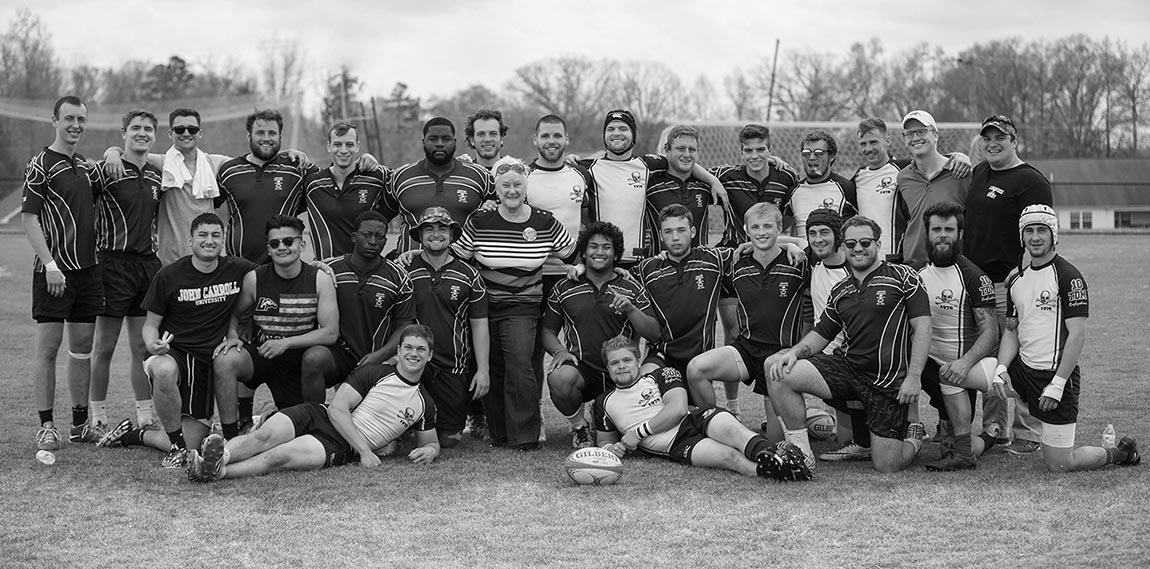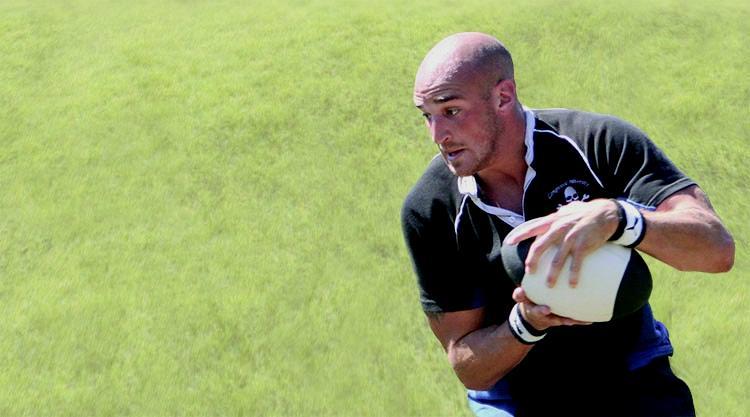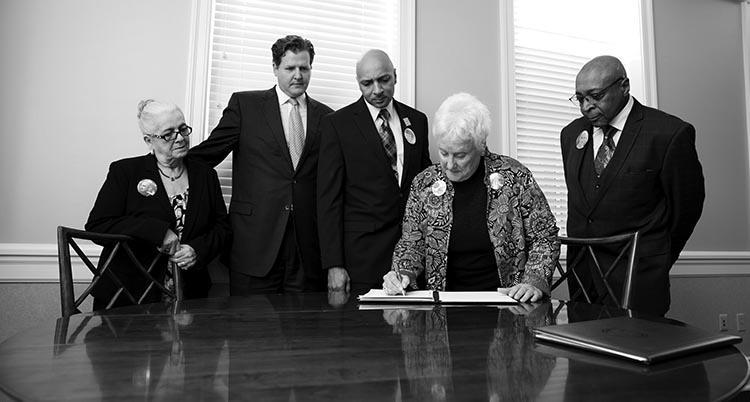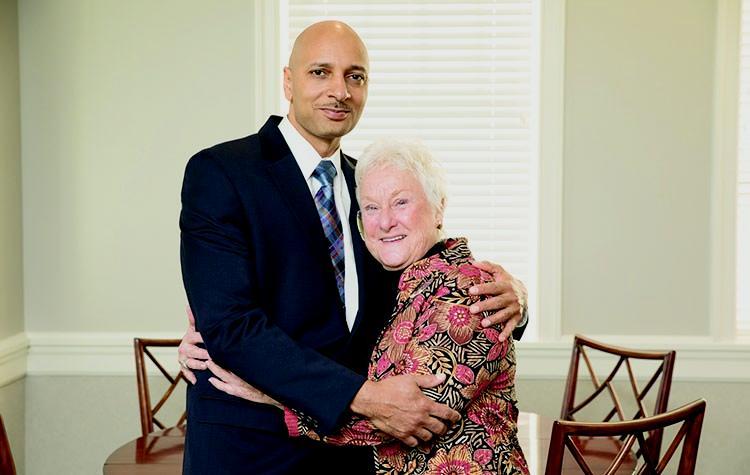

In Virginia Beach there is an 8-year-old boy who doesn’t know why his middle name is Todd.
He knows that his dad has a scar on his stomach. He knows his dad was sick once—really sick—but then he got better. But he doesn’t know how that story connects to his own middle name. Not yet, because sometimes it’s difficult to explain things like liver failure and organ transplants to children.
But soon, he’ll know. And he’ll understand then why he’s being raised the way he is. School comes first, because his middle name is Todd. Give generously, because his middle name is Todd. Cherish deeply time with family, because his middle name is Todd.
He’ll also learn about the Todd Davis Miller Rugby Memorial Scholarship and the Longwood students who are chosen to receive it every year because they put school first, and give generously of their time, and mentor younger students.
And that’s because of a popular and generous rugby player, a rare on-field collision, an unfathomably difficult decision by a heartbroken mother, and the friendship that blossomed between her and the man whose life Todd saved.
A routine tackle

In 2008, Longwood’s rugby team practiced and played at First Avenue Field, a spot tucked away in a residential neighborhood called The Avenues just west of campus.
The game on March 1, 2008, was against a familiar in-state foe: VMI. The Keydets were no match for the Lancers, who jumped out to a lead and didn’t look back. Todd started and played well—typical for the senior who had become something of an older brother to many of the younger players he called “rookies.”
At 25, Todd was seven years older than many of his teammates. He’d started at Longwood as a voice major at 18, then dropped out, only to return several years later to finish his degree—this time in business administration. Those years gave him perspective, and his teammates talk about how he would make sure freshman players got to class on time, keep them safe (and on good behavior) at parties and always have his door open to listen or help with a problem. He was their mentor, their north star.
Toward the end of the match that cool spring day, Todd went in for a routine tackle and after the play, head down, walked off First Avenue Field.
As Todd walked to the sideline, Ellie Miller didn’t think twice. Her son was a grown man—6-foot-3 and 215 pounds—who had taken and doled out many, many hits just like this one. He was just coming off to let his “rookies” get some playing time before the end of the game.
Then Todd collapsed.
When his eyes closed on the sideline, they never opened again. A week later, Todd Miller died in a room on the 11th floor of the Medical College of Virginia Hospital in Richmond.
But his last act—the one his mother knew he would have wanted—saved a life and left a legacy that will stretch for many lifetimes.
Touched by an angel
Sixty miles away and three days later, merchant mariner Joe Leake, 36, came down with what seemed like the flu.
“The next morning I couldn’t get out of bed,” he said. “My wife was in Iraq, so my mother had to come over to put my son on the school bus. I remember her telling me to go to the hospital, but I was so stubborn I wouldn’t go. I thought it was just the stomach flu.”
But by the next morning, Leake knew it was more than a virus. He managed to open the front door and call 911 before he passed out.
A week later, he woke up in a hospital bed with 54 staples across his abdomen and Todd Miller’s liver inside him.
Ensuring Todd’s legacy
As rugby hits go, the one that Todd Miller was injured from wasn’t abnormally hard. Before concussion protocols and broad awareness of chronic traumatic encephalopathy, coaches called hits like these “stingers.” Enough to rattle your cage, but not enough to cause deep concern. There’s a culture of toughness among rugby players and coaches, who only recently have started responding to possible head trauma in a more systematic way.
Almost as soon as Todd Miller died, people wanted to do something.
John Graham, a computer science professor and the longtime coach and champion of the rugby team, proposed an annual tournament to raise money to one day endow a scholarship. They needed $25,000—a tall fundraising goal when you’re relying on profits from T-shirts and concessions—but it was a start. And it came together quickly: The first tournament was held a year later.
The tournament eventually faltered because of weather and scheduling issues with other club teams, but the fund steadily grew and scholarships were awarded for a few years from the operating money, but the goal continued to be an endowed scholarship—one that would last in perpetuity.
Joe Leake and his family understood how important it was—not only to Ellie Miller (Miss Ellie, always Miss Ellie, to Joe) but also to them—to ensure that Todd’s legacy was to help people in perpetuity. Very quietly they began contributing to the fund, and for nearly a decade it grew until it hit that important $25,000 threshold in early 2018.

Magically, at the same time, the tournament found new life. A former Longwood rugger now in the U.S. Marine Corps, Maj. Jason Dempsey ’06, spearheaded its phoenixlike rise from the ashes this April, and Ellie Miller again made the trip to see it. The team still plays matches at First Avenue Field—but the Todd Miller tournament was held at Lancer Park—and she was there, all smiles, watching over the Lancer team the way her son did a decade ago.
The newly endowed scholarship honoring her son was given for the first time that day—as it will be every year— to two rugby players who gave it all on the pitch, the way Todd did.
Jean Carlo “JC” Siles ’20 and Bridgett Dunn ’19 each received a scholarship from Ellie Miller. Siles, a psychology major, is a member of Psi Chi, the psychology honor society, while Dunn, the women’s rugby captain and former match secretary of the team, is a liberal studies major.
“It’s a real honor to receive this scholarship,” said Dunn. “The name Todd Miller is still legendary for Longwood rugby players—we all know his story—and to meet his mother and hear about him as a person was really special. I feel very humbled to receive a scholarship named after Todd.”
From heartbreaking loss, friendship

In 2008, still recovering in Virginia Beach, Joe Leake couldn’t stop himself. It only took a few Internet searches to piece together who saved his life: a 6-3, 215-pound man who fell into a coma during a rugby game and was flown by helicopter to the same hospital Leake woke up in. And though it’s recommended that trans-plant recipients and family members wait a year to make contact, he couldn’t wait that long.
“I had to talk to Todd’s mother and say thank you,” he said. “I felt so moved to do that, and it couldn’t wait.”
Six months after the transplant, Joe came to a Longwood rugby game at First Avenue Field, carrying a dozen red roses.
The first thing Ellie remembers is how similar the two men looked. Both tall, both with shaved heads, both with wide, infectious smiles, both college athletes.
Doctors had told Joe’s mother two things on Sunday, March 9, 2008: Her son had about 12 hours to live, and there was a 1-in-1,000 chance that a liver would come available. The implication was unavoidable: Joe needed a miracle.
And he got one when Ellie Miller made the difficult decision to take her son off life support. But that choice had consequences neither one could predict. Joe found a best friend in that same woman. Ellie, for her part, found a renewed sense of hope as she and Joe became closer and the family of the man who was walking around with her son’s liver began quietly adding to the meager scholarship fund in her son’s name.
“Once we got started, we couldn’t stop talking,” Leake said. “I’m normally a pretty quiet person, but there was something about Miss Ellie that was so familiar. She started talking about Todd and I started talking about my family, and we found out that we really ... liked each other.”
As Joe came to know more about Todd, the more he was impressed.
“I needed someone like Todd in my life,” said the shooting guard who bounced between Old Dominion, Hampton and Florida International playing NCAA basketball in college. “I wasn’t a bad kid, but I enjoyed the social aspect of college maybe a little more than I should have. If I’d had a guy like Todd around, he’d have kept me straight. Those students he touched at Longwood should be forever grateful they had him in their lives.”
Life after death
That liver did more than save Joe’s life, to hear Joe tell it.
His father, Joe Leake Sr., also a merchant marine, was working in Russia when he heard his son was deathly ill. It took him days to get home—leapfrogging from Korea to Japan to Los Angeles to Chicago to Richmond. He thought he was returning to his son’s funeral.
“If Joe hadn’t received that liver, his mother wouldn’t have survived it,” said Leake Sr. “And I wouldn’t have my grandchild. Or my son. I have all of that because Todd Miller and his mother gave so generously to my family.”
Joe’s older son was in second grade when his father woke up in MCV with a new liver.
“He has Asperger’s [syndrome] and was in a self-contained class, that’s how bad he was doing in school,” said Leake. “This June, 10 years after my transplant, he has graduated high school fully mainstreamed, with a 3.0 grade-point average, and is being recruited to wrestle in college. That’s because of Todd. Once I started learning about Todd, I said I want my son to be like that man. He can be an athlete, but he’s going to be a student-athlete. He’s going to be generous to a fault. He’s going to know how important family is.”
And, of course, those lessons are being taught to Joe’s younger son, Christopher Todd Davis Leake, an athlete like his dad and Todd, born a year after his father’s operation. One day he’ll know why.
